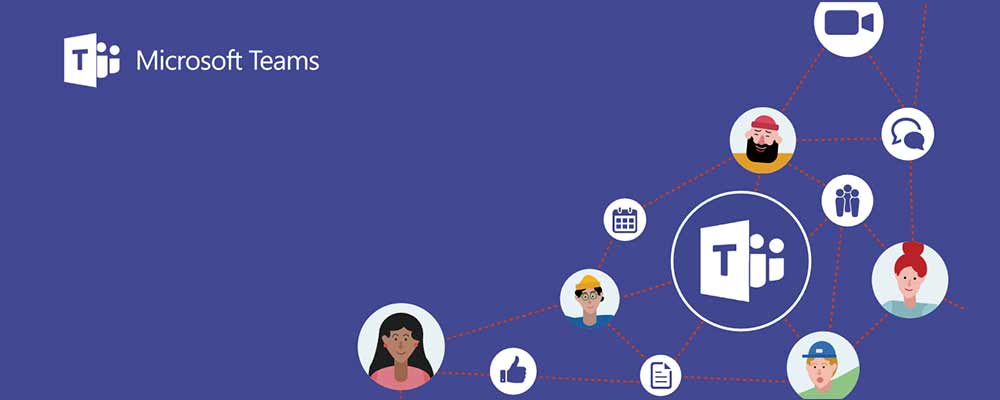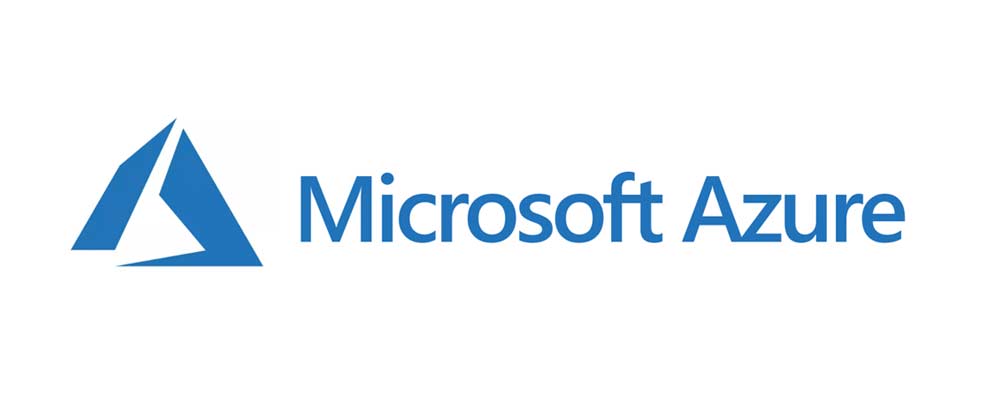Blog post
What’s so great about Microsoft Teams? Why 2020 is the year to learn about it.

By Samantha Allen 11 Mar 2020

The way we communicate and do business changes constantly. With the start of a new decade, 2020 promises some exciting changes and transitions. This year we say goodbye to Skype for Business and hello to Microsoft Teams. Read on to find out all about Microsoft Teams and what it can do for you and your business.
What is Microsoft Teams?
Microsoft Teams is a chat-based collaboration tool that provides teams with the ability to work together and share information via a common space. Its features include document collaboration, one-on-one chat and team chat, video meetings, file storage, and application integration. A Microsoft spokesperson described it as a “digital translation of an open office space”.
Microsoft Teams is also fully integrated with many other Office 365 services, such as Skype, SharePoint, Exchange, and Yammer. Microsoft is still leading the way with Office 365 and because of this market leading position, their newer tools such as Teams are becoming widely used. Microsoft added Teams to its suite of Office 365 services in 2016.
You may also like to read “The top 5 benefits of Office 365 for Business”.
Microsoft has said that Teams will be the central tool for what it calls “intelligent communications”. Plans for new features include sourcing documents ahead of a meeting, recording and transcribing discussions, and adding notes and recordings to relevant Teams channels for review.

What is Microsoft Teams good for?
Microsoft Teams is perfect for global, remote, and dispersed teams. The modern way of working has become more diverse, with team members working from different locations. It’s easier than ever for companies to build their teams internationally, and some may never meet their fellow colleagues in person. But Teams makes it easier for these distant team members to work together, communicate and collaborate effectively.
Teams provides versatile options for communication so you’re not limited to one communication method. You can choose between group chat rooms with threaded conversations, or send private messages between individuals. Users can also easily jump from instant messaging to a video call at the push of a button.
Teams naturally integrates with the rest of Office 365 tools, and OneDrive documents can be accessed and edited without leaving the app. Teams also integrates well with various third party bots and applications including project management tools like Trello, Smartsheet and Wrike.

What can Microsoft Teams do for you and your business?
Enrich your communication
Microsoft Teams is a newly developed application without any legacy, and it’s been designed with the present workforce in mind. A more modern form of communication is offered, with support for “likes”, gifs, emoticons, live link previews, etc. All of which enriches your communication.
Focus more on what matters
Teams nicely categorises your conversations so it’s easy to find relevant information and ignore everything else. Unlike your permanently cluttered inbox, you can simply look at the relevant channel to find what you’re looking for.
Encourage transparency
Unlike private emails, everyone can see everything on Microsoft Teams. If someone hasn’t been copied in or tagged in a message, they don’t have to feel left out as they can simply find the conversation and info. No more FOMO!
There also doesn’t need to be any language barriers with your international team members, as Microsoft Teams has nifty translation functions. So everyone can be on the same page, and contribute equally.
Make onboarding speedy
When a new team member enters, it’s easier than ever to bring them up to speed on what’s been happening. They can simply access the Teams app and dip into all the information needed. Onboarding becomes easier than ever, and your new team member can take control of their own learning.
Increase your productivity
Microsoft Teams has about 24 bots with a variety of functionalities to help increase productivity. There’s the T-Bot, which can answer most basic and frequently asked questions about Teams, Polly Bot for polling co-workers, Statsbot for delivering scheduled reports via sources, such as Salesforce and Google Analytics, and Growbot, which allows the exchange of kudos with your co-workers. Read more about the bots HERE.
Increase your engagement
All organisations are different, so it’s incredibly useful that Teams can be customised to meet your unique business and cultural needs. Teams has been designed to allow the addition of new capabilities or functionality, and you can create and customise the applications and other intelligent services to integrate with Microsoft Teams.
Improve your security
Security is an area that Microsoft excels in. Microsoft Teams can ensure your peace of mind, as your data is encrypted while in transit and at rest. As with all of Office 365’s services, you can be sure you’ll be provided with cutting-edge security and compliance capabilities.
Protect your employees health
2020 has brought with it a new epidemic, in the form of coronavirus, or COVID-19. Where there's disaster however, there's also opportunity, and Microsoft has been promoting Teams as a means to have meetings online, instead of in person, to address the COVID-19 situation.
With the coronavirus being thought to have originated in China, it’s important to note that Teams use has recently spiked in China. Jared Spataro, corporate vice president for Microsoft 365, stated: "Since January 31 2020, we've seen a 500 percent increase in Teams meetings, calling, and conferences there [in China], and a 200 percent increase in Teams usage on mobile devices".

Is Microsoft Teams replacing Skype for Business?
The short answer is yes, Microsoft Teams is replacing Skype for Business. Skype for Business is being phased out and will cease to exist from July 31st 2021. Since September 2019 new Office 365 customers have been redirected to Microsoft Teams.
James Skay, a senior product marketing manager in Microsoft's Intelligent Communications Product Marketing Group, stated: "we've worked closely with customers to refine Teams, and we now feel we're at the point that we can confidently recommend it as an upgrade to all Skype for Business Online customers".
The idea is to create a “single hub for teamwork”. Lori Wright, general manager for Microsoft Teams, said “We quickly moved from Teams as the chat-based workspace to the hub for teamwork, and what we saw was that collaboration and communications are inextricably linked: you can't have true collaboration if you don't have the ability to communicate, to have unified communications, to make a phone call, to have a voice or video meeting. All of these things are core to the collaboration experience.”
Does Microsoft Teams replace email?
The short answer to this question is no, Microsoft Teams doesn’t replace email.
While Teams is seen as an upgrade that can do everything Skype for Business could and more, the need for emails will still remain. You still need Outlook or email to send external communications, such as client emails.
There may be certain features and tools from Outlook that will someday appear in Teams, but email will be needed for communicating outside of your team. Email is great for 1-1 communication, whilst Teams is great for communicating to many.
It’s also worth noting that at the moment you still need Outlook to view your group calendars, and to view a shared doc. Teams doesn’t currently support Group calendars, so to see your Team/Group calendar you have to switch to Outlook. And if you are editing a document in Word, there is currently no option to send a sharing link via a Teams chat, so the link is sent via email.
Email is an important verification tool as well as a communication tool. Think password resets, app support and account information - you’ll still need email to do all of this.
Is Microsoft Teams better than Slack?
There’s no short answer to this question. Microsoft Teams is similar, but different to Slack. While Slack focuses on group chat, Teams is also about group file-sharing and content collaboration.
Microsoft reportedly considered acquiring Slack in 2016, before the plans were vetoed in favor of Microsoft building its own application. Since early 2019, Teams has already overtaken Slack in popularity. To strategically position Teams in the market, Microsoft offered it free of charge to existing Office 365 users.
Both Slack and Microsoft Teams offer similar conversation threads for messages including plain text and tagging. Both support GIFs, but Teams makes it easier and quicker to insert a GIF into your message than Slack does. Teams also has far superior web conferencing capabilities to Slack. Teams additionally offers the ability to record meetings, while Slack does not.

Why do I need training in Microsoft Teams?
For users to embrace something as important as online meetings, they need to feel extremely comfortable with the tool.
When you start working in Teams you won’t have the structure ready from start. You don’t know which channels you need, and you might not know exactly what Teams you need to create. This will evolve over time with the work that you do, but if you have training you can set it up correctly from the beginning and save yourself plenty of time and hassle. Currently, the building blocks of Teams aren’t very flexible - you can’t move channels or replicate Teams. This could potentially lead to time wasted doing manual replications. With the right training, you can avoid these problems before they happen.
With training plans in place you can aid migration. Create pilot groups, find enthusiastic adopters and power users who can happily pass on their knowledge. This will speed up and smooth the transition and ideally result in everyone in your team understanding how to collaborate and communicate effectively using Microsoft Teams.
You can browse all of our Microsoft Teams courses HERE or contact us to find out more.
At Go.Courses our mission is to bring you the world’s best IT courses. Our aim is to make it easy for you to book training and learn new skills. All our courses are trainer-led by experts in their field and available all over the UK and Europe.




